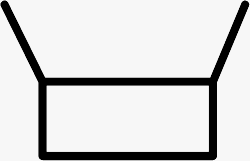By Kristina Ang
Accessibility is one of the most important facets of any movement. We, here at Hyer Goods, want you to enter the conversation of sustainable fashion and the movement towards greater ecological consciousness in the industry with confidence. We get it. Sustainability can be daunting, especially if you didn’t grow up with the term as commonplace as it is now. The good news is that the sustainable fashion community is full of compassionate and accepting individuals who are willing to sit down and have a conversation with anyone at any point in their sustainable journey. But even then, getting a grasp on the technical terminology involved in the subject of sustainable fashion will help you and others around you make more informed decisions towards the wellbeing of the environment.
We know how tedious it can be to constantly search for the definition of such terms on your search engines, so we’ve done all of the work for you! We like to call this our dictionary of sustainable fashion terms and we hope you love it just as much as we loved putting it together:
Ethical. An umbrella term that covers a range of issues including working conditions, exploitation, fair trade, sustainable production, the environment, and animal welfare in accordance with the standards for right conduct or practice.
Vegan. Using or containing no food or other products derived from animals.
Organic. Produced without the use of chemical fertilizers, pesticides, or other artificial chemicals.
Secondhand. Used items that have had a previous owner.
Deadstock. Materials, usually fabrics, that are leftover from overproduction. Deadstock also refers to the merchandise that was not sold and warehoused goods that have become unsellable.
Biodegradable. Products that are capable of breaking down and returning to nature. Biodegradable materials are designed to break down within landfills (which are anaerobic environments, meaning they lack oxygen). Anaerobic digestion, as the process is referred to, utilizes microorganisms to break down biodegradable material in the absence of oxygen.
Compostable. Products that are capable of breaking down through biological processes in organic materials like soil, causing no harm to the environment. Compostable materials require special composting conditions such as enough oxygen and moisture in the soil for the materials to break down.
*Note: Compostable materials do not break down in landfills and biodegradable materials do not break down in soil*
Biodesign. Defines the intersection between biology and design that spurred the creativity of scientists, artists, and designers to integrate organic materials and processes into their work. Commonly misconstrued as a practice that draws inspiration from nature and biology, biodesign is a term that refers to something much more involved.
Pre-consumer Waste. Material that is generated after the manufacturing process, but before the product reaches the consumer.
Post-consumer waste. Finished material that has reached its intended end-use and completed its life cycle.
Microplastics/microfibers. Miniscule particles of synthetic fabrics that come off of our clothing while in the washing machine.
*Sustainable Tip: To alleviate the problem of microfiber pollutants that result from washing your clothes in a washing machine, try using a microfiber catching laundry ball like the cora ball.*
Upcycling. Taking discarded objects or materials to create something of greater value. Conversely, downcycling means to recycle objects or materials that are of lower quality than the original material.
Mechanically Recycled. Processes that aim to recover plastics waste via mechanical processes (i.e. melting, reshaping, grinding, washing, separating, drying, re-granulating and compounding).
Chemically Recycled. Processes by which a polymer is chemically reduced to its original monomer form so that it can eventually be processed (re-polymerized) and remade into new plastic materials that go on to be new products.
Regenerative Agriculture. Farming and grazing practices that utilize the power of photosynthesis to rebuild soil organic matter and restore degraded soil biodiversity. Regenerative agriculture also holds many key benefits to it such as reversing overall climate change.
Made On Demand. A system in which apparel is specifically made according to a customer’s specifications, which are usually predetermined.
Circular Economy. An economic system whose main goal is to eliminate waste and to keep materials in use for longer. This systematic approach is designed to benefit businesses, society, and the environment.
Closed-loop. A closed-loop system is one in which products are designed, manufactured, used and handled to circulate within society for as long as possible.







Leave a comment